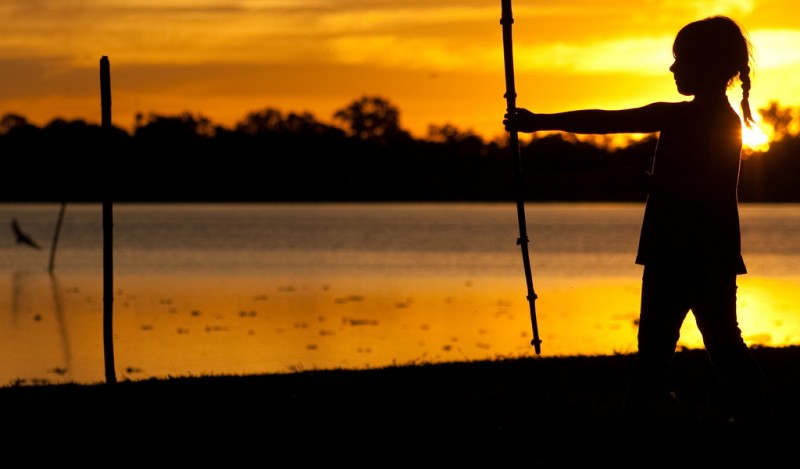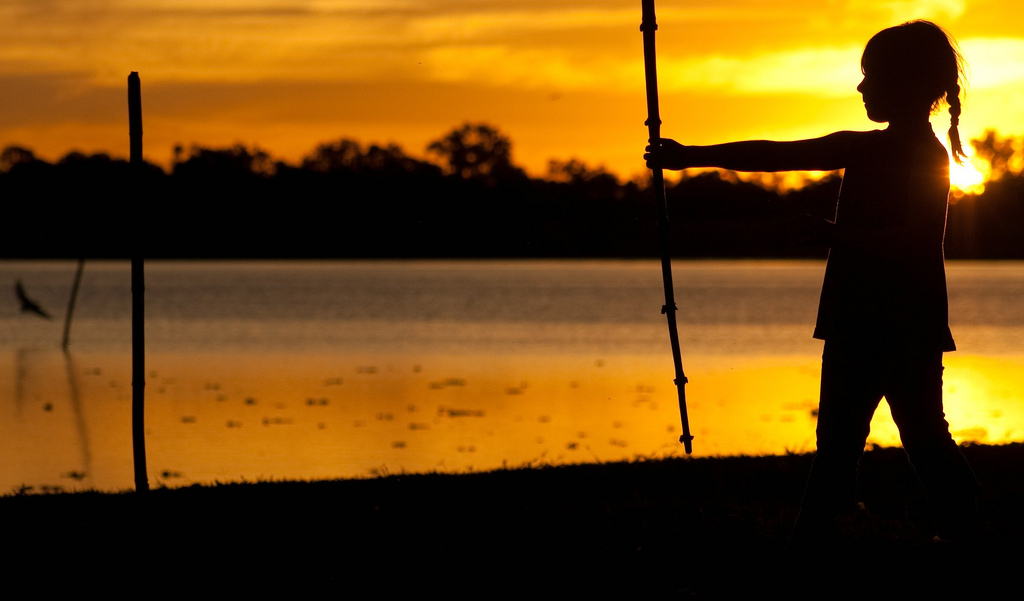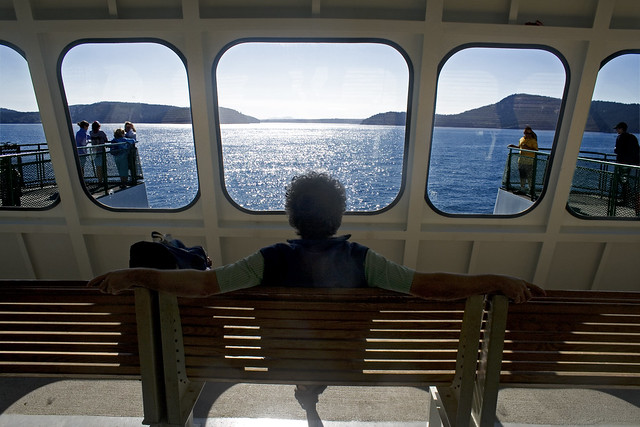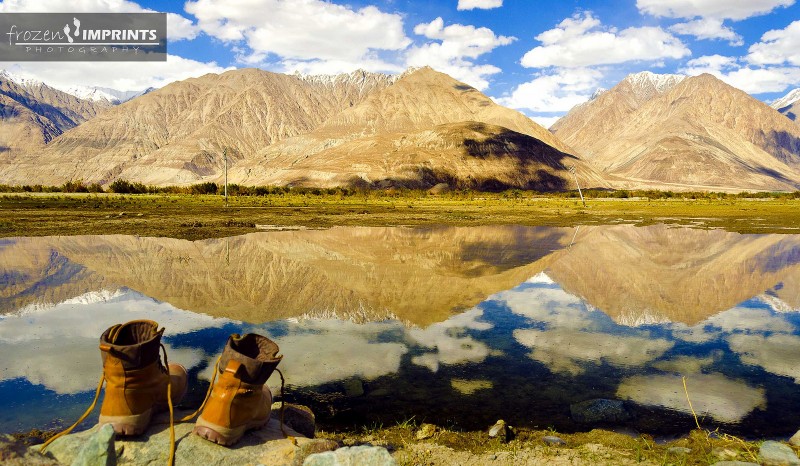A nomad is someone who travels extensively, with no real home other than the wide-open road. They usually carry all their possessions with them and earn little to no income.
Vagabondish is reader-supported. When you buy through links on our site, we may earn a small affiliate commission. Read our disclosure.
Nomadic travel is most tolerated if you are young, responsibility-free, and trying to “find yourself”, but only for a pre-determined amount of time. But why isn’t travel””apart from age and status””worthy of pursuing in itself as a respectable (not just fulfilling) way of life?
The most common question we get from people we meet since hitting the road full-time is: “For how long are you traveling?”

© Vanessa Runs
We still aren’t sure how to answer that. “Um ”¦ forever?” We then explain that we live this way. It’s not a vacation or a year-long “project”.
People are puzzled by this concept. Our contact with them usually expires before they grasp it, and as we walk away I can hear the wheels turning in their heads with a million questions.
Online, people have fewer questions and more opinions. We’re often called freeloaders or spoiled by people who don’t know us but reflexively dislike the concept of full-time travel. Some accuse us of contributing nothing to society, or worse””burdening it.
This isn’t surprising when you consider that although this lifestyle has many benefits, they are often described as personal fulfillments rather than contributions to the real world, giving us the reputation of takers, not givers.
What benefits do nomads bring to society then? Do we really need them?
The answer is a resounding yes. As much as we need lawyers, doctors, and construction workers””we need nomads. Here’s why:
Social Benefits
A few weeks ago, reader Jessica Kurti posted on my Facebook wall:
Transported my first hitchhikers today ”¦ was AWESOME. Two ”˜through hikers’ doing the entire Pacific Crest Trail. Gave them a lift to Sisters, Oregon, where they were going to eat, run errands, and meet a ”˜trail angel’ who would give them a lift to the next trailhead. So, I would like to say THANK YOU, to you, Shacky, Honey Bird and Crockett (their trail names). I learned so much about what is possible!
Although I love to help people, I rarely consider picking up hitchhikers (in this country at least as a single female). SO GLAD I DID. And I wish *all of us* continued safe journeys and amazing adventures ahead!
Much love from Bend, Oregon (started in Florida). Keep on keeping on!
She was thanking me because I’d previously written about our experiences picking up hitchhikers, commenting on how unfounded our society’s fear of hitchhiking actually is.
Nomads are more trusting of strangers than the average person, probably because they spend a large portion of their time interacting with strangers. They discover that strangers (and people in general) are inherently good, hospitable, and eager to help. As a result, nomads often serve as society’s connectors.
Nomads will:
- Connect people with similar interests to each other
- Connect people with resources to people in need
- Connect strangers in close proximity
- Connect Facebook friends with real-person contact
Nomads not only make frequent connections, but also improve the quality of those connections. The transition isn’t from stranger to acquaintance, but from stranger to good friend. Nomads have the time to truly listen and understand the people they meet. They are not rushing to their next appointment or toiling over what they’ll cook for dinner. Their attentions are focused on the stories and experiences of others. Nomads allow us to feel heard and to feel like our stories matter.
The Bottom Line
Nomads connect us to each other, re-establish our faith in humanity, and dispel unfounded social stigmas.

Young Nomad Girl at Sunset © +gAbY+
Intellectual Benefits
I first learned of Maslow’s hierarchy of needs in a high school Psychology class. As a child of poverty, it was my first introduction to the concept that there may be more to life than living to fulfill our basic needs of food and shelter.
Abraham Maslow developed this theory in his 1943 paper describing the stages of human growth. While other psychologists of his time were studying the mentally ill, Maslow examined the healthiest one percent of a college student population. He named people like Albert Einstein, Eleanor Roosevelt, and Frederick Douglass as examples he studied. Here is the hierarchy:
Modern society over-emphasizes the bottom two levels at the expense of the top three. Once we’ve met our basic needs of food, shelter, and security, we are pressured to over-develop those benefits: a bigger house, a nicer car, giving our kids everything they could possibly want (not just what they need). To achieve this, we sacrifice the higher levels of friendships, self-esteem, and the freedom to be creative.
Nomads embody the opposite, and as a result they balance society. We embrace the bare minimum when it comes to food, shelter, and security in exchange for the higher opportunities of self-actualization. We have the freedom to immerse ourselves into areas that the rest of society has little time for: volunteering, extensive travel, year-long projects with little to no financial return, and time-consuming works of art.
We learn from the nomad that happiness comes in different shapes, despite society’s insistence that more money equals more freedom. We see nomads working as their own bosses, or exploring their true passions. Watching them gives us the courage to do the same.
The Bottom Line
Nomads challenge and change the way we think and view the world.
Environmental Benefits
Can you brush your teeth with two sips of water? What if all the water you had access to for the day was the amount you could carry on your back? What if all the trash you could make was limited to what you could pack out? What if the only light you had after dark was a headlamp?
As a nomad, I have learned to use less water, less electricity, and produce less waste. I have grown resourceful enough to fix things when they break instead of throwing them away. Many nomads live this way. It’s not a weekend camping trip; it’s life. More importantly””it’s not that hard.
Nomads can teach us to respect, appreciate, and preserve our resources. They can show us how to live comfortably with less, how to save hundreds on unnecessary products, and how to stop draining our planet.
I have only experienced two city-wide blackouts in my life: one in Toronto, and one in San Diego. Both times, it felt like mass panic in the neighborhood. As a society, we are uncomfortable with the concept of living with less. We tend to imagine extremes: either we live large or live in a cave with nothing. Nomads know there is a sweet middle ground where we can drastically reduce our carbon footprint yet still fit in with civilized society.
The Bottom Line
Nomads teach us to respect our resources and show us how it is possible to live comfortably with less.
This is part 1 in a multi-part series on why the world needs nomads. Check back tomorrow for part 2!





